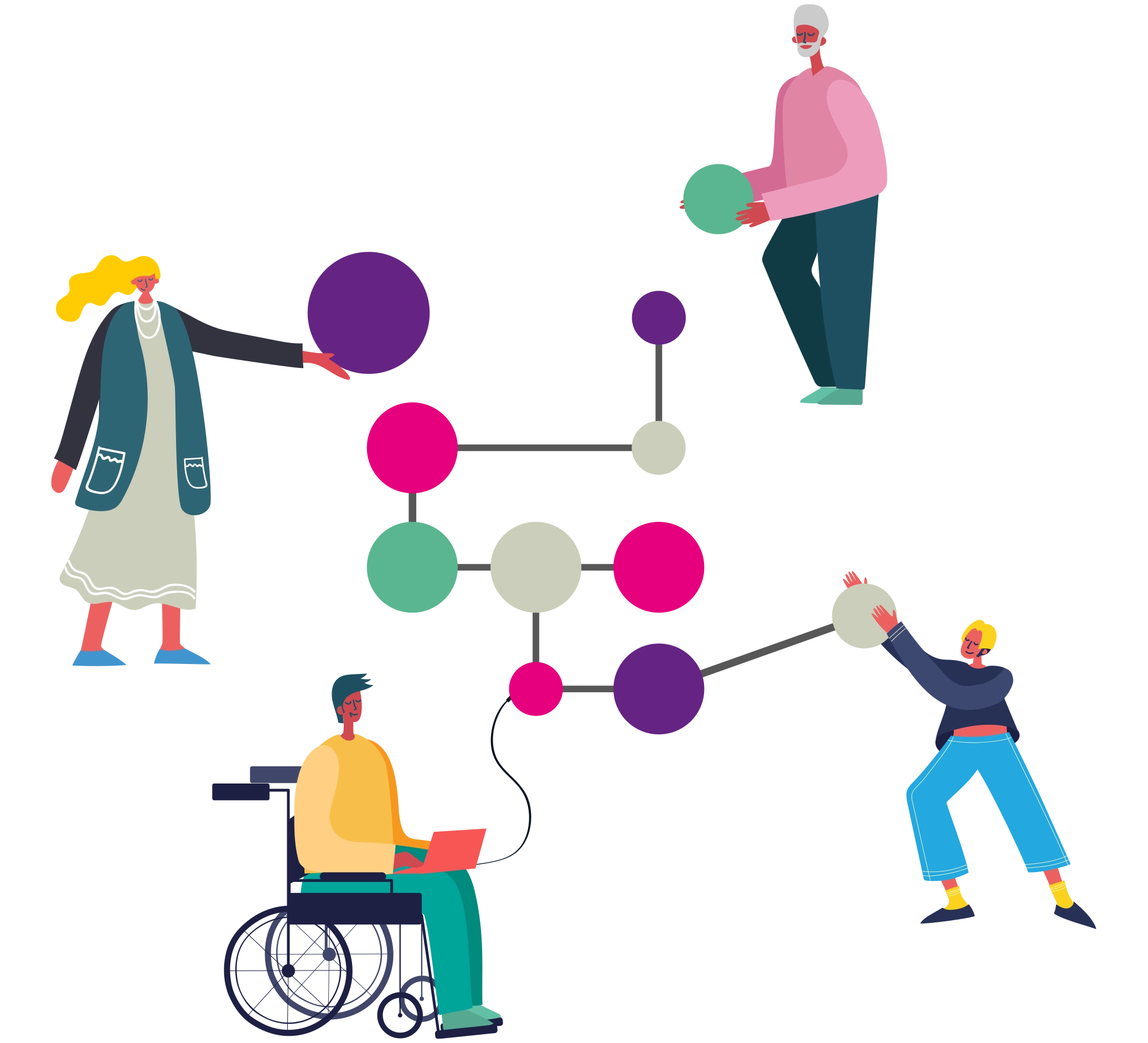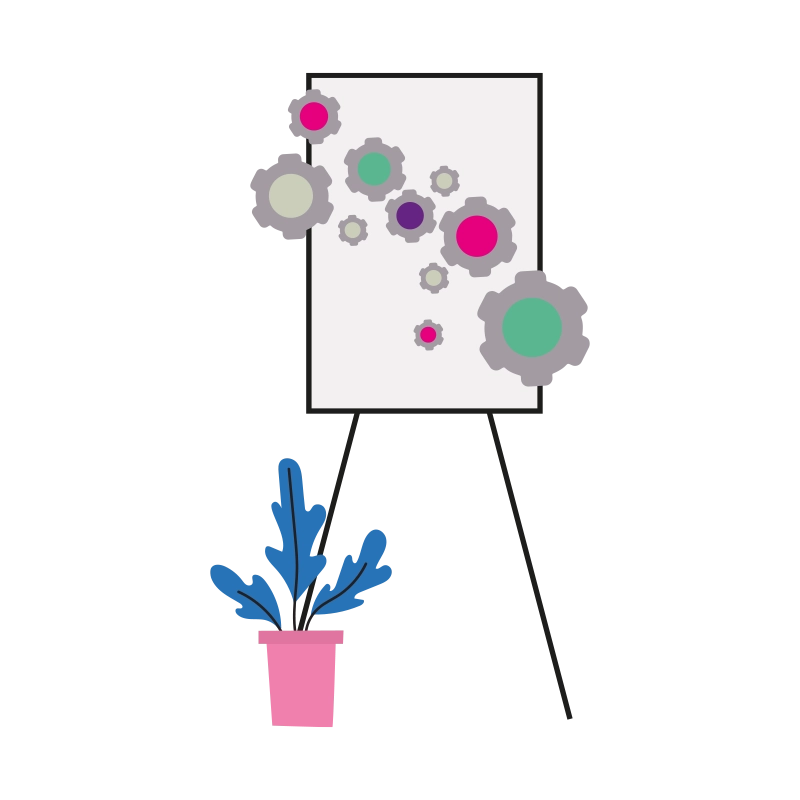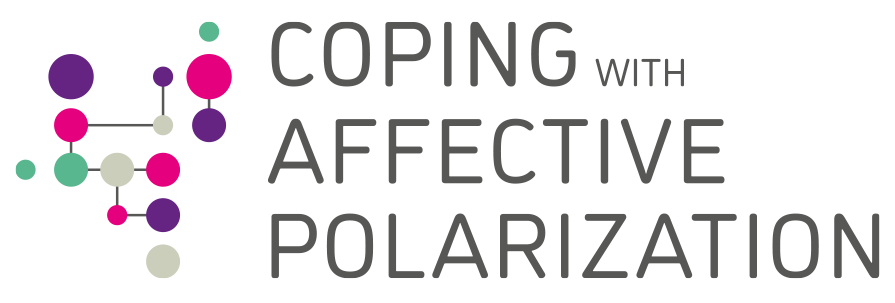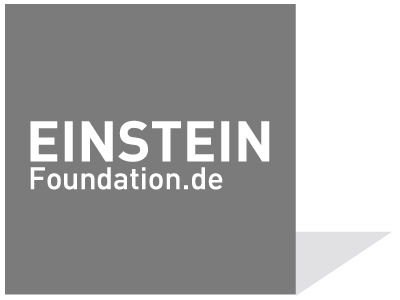Einstein Research Unit
Affective Polarization
Wie die Zivilgesellschaft Sozialen zusammenhalt fördert


Einstein Research Unit
Coping with
Affective Polarization
How Civil Society Fosters Social Cohesion
Wie die Zivilgellschaft sozialen Zusammenhalt fördert
Die Einstein Research Unit “Coping with Affective Polarization – Wie die Zivilgesellschaft sozialen Zusammenhalt fördert” ist ein interdisziplinärer Forschungsverbund mit Sitz in Berlin. Forschungsteams der Humboldt-Universität zu Berlin, der Freien Universität Berlin und der Charité – Universitätsmedizin Berlin untersuchen die Dynamiken affektiver Polarisierung sowie Strategien zur Eindämmung ihrer negativen Auswirkungen.
Mithilfe empirischer Forschung und in enger Zusammenarbeit mit zivilgesellschaftlichen Organisationen untersuchen wir die Ursachen und Wirkungsweisen affektiver Polarisierung sowie deren Einfluss auf das gesellschaftliche Miteinander.
Ziel ist es, gezielte Interventionen und Strategien zu entwickeln, die Individuen, Gruppen und zivilgesellschaftliche Akteur:innen befähigen, konstruktiv mit gesellschaftlicher Polarisierung umzugehen. Im Fokus steht dabei, wie die Zivilgesellschaft sozialen Zusammenhalt fördern und eine offene, produktive Auseinandersetzung über politische und soziale Gräben ermöglichen kann.
In unserer Einstein Research Unit arbeiten wir in fünf miteinander vernetzten Forschungsbereichen. Klicken Sie auf die untenstehenden Felder oder besuchen Sie den Bereich „Forschung“, um mehr zu erfahren.

Der Berliner Polarisierungsmonitor ist eine innovative Dateninfrastruktur zur kontinuierlichen Untersuchung der Dynamiken affektiver Polarisierung in Deutschland. Anhand einer längsschnittlichen, repräsentatitven Umfage wird gemessen, wie sich affektive Polarisierung über Zeit entwickelt.

In unserer Einstein Research Unit betrachten wir affektive Polarisierung aus verschiedenen wissenschaftlichen Perspektiven. Unsere fünf zentralen Forschungsbereiche ergänzen sich dabei gegenseitig. Durch kontinuierliche Datenerhebung und interdisziplinäre Analysen identifizieren wir Ressourcen, die Individuen und Gruppen im Umgang mit affektiver Polarisierung stärken.
Zivilgesellschaftliches
Interventionslabor

Wir sehen die Zivilgesellschaft als zentrale Akteurin, um sozialen Zusammenhalt zu mobilisieren und den negativen Folgen affektiver Polarisierung entgegenzuwirken. In enger Zusammenarbeit mit zivilgesellschaftlichen Organisationen entwickeln wir wirkungsvolle Interventionsstrategien.
„Zivilgesellschaftliche Gruppen“

Dieser Forschungsbereich untersucht gesellschaftliche Diskurse sowie Kommunikationsdynamiken und -strategien im Kontext affektiver Polarisierung – mit besonderem Fokus auf soziale Medien, aktivistische Netzwerke und zivilgesellschaftliche Organisationen.
„Soziale Interaktionen“

Im Forschungsbereich „Soziale Interaktionen“ werden nonverbale und emotionale Mechanismen erforscht, die soziale Interaktionen innerhalb und zwischen politischen Gruppen prägen – und dabei beeinflussen, ob diese Interaktionen affektive Polarisierung verstärken oder abschwächen.
In unserer Einstein Research Unit arbeiten wir in fünf miteinander vernetzten Forschungsbereichen. Klicken Sie auf die untenstehenden Felder oder besuchen Sie den Bereich „Forschung“, um mehr zu erfahren.

Der Berliner Polarisierungsmonitor ist eine innovative Dateninfrastruktur zur kontinuierlichen Untersuchung der Dynamiken affektiver Polarisierung in Deutschland. Anhand einer längsschnittlichen, repräsentatitven Umfage wird gemessen, wie sich affektive Polarisierung über Zeit entwickelt.

Der Berliner Polarisierungsmonitor ist eine innovative Dateninfrastruktur zur kontinuierlichen Untersuchung der Dynamiken affektiver Polarisierung in Deutschland. Anhand einer längsschnittlichen, repräsentatitven Umfage wird gemessen, wie sich affektive Polarisierung über Zeit entwickelt.
INTERVENTIONSLABOR

Wir sehen die Zivilgesellschaft als zentrale Akteurin, um sozialen Zusammenhalt zu mobilisieren und den negativen Folgen affektiver Polarisierung entgegenzuwirken. In enger Zusammenarbeit mit zivilgesellschaftlichen Organisationen entwickeln wir wirkungsvolle Interventionsstrategien.
„ZIVILGESELLSCHAFTLICHE GRUPPEN“

Dieser Forschungsbereich untersucht gesellschaftliche Diskurse sowie Kommunikationsdynamiken und -strategien im Kontext affektiver Polarisierung – mit besonderem Fokus auf soziale Medien, aktivistische Netzwerke und zivilgesellschaftliche Organisationen.
„SOZIALE INTERAKTIONEN“

Im Forschungsbereich „Soziale Interaktionen“ werden nonverbale und emotionale Mechanismen erforscht, die soziale Interaktionen innerhalb und zwischen politischen Gruppen prägen – und dabei beeinflussen, ob diese Interaktionen affektive Polarisierung verstärken oder abschwächen.



